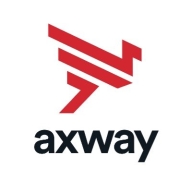

Axway AMPLIFY Application Integration and Azure Data Factory compete in the integration and data transformation software market. Azure Data Factory takes the lead with its advanced feature set and scalability, appealing to large enterprises.
Features: Axway AMPLIFY is noted for its extensive connectivity capabilities, seamless message integration, and robust file transfer features, making it suitable for complex workflows. Azure Data Factory provides a complete ETL solution, vast data transformation capabilities, and seamless integration with other Azure services, offering powerful real-time analytics.
Room for Improvement: Axway AMPLIFY could enhance its cloud integration options to better compete with cloud-first competitors. It may also benefit from expanding its customer support channels and simplifying on-premise configurations. Azure Data Factory might improve by optimizing its monitoring features, expanding support documentation, and refining its cost predictability for complex projects.
Ease of Deployment and Customer Service: Axway AMPLIFY offers a user-friendly setup, although its on-premise options can complicate deployment. Azure Data Factory benefits from straightforward cloud-based deployment, backed by extensive Microsoft Azure infrastructure. Azure's customer service is often praised for its responsiveness and comprehensive online resources, setting a higher support standard.
Pricing and ROI: Axway AMPLIFY is priced accessibly for small to mid-sized organizations, yielding strong ROI for specific integration needs. Azure Data Factory, though potentially more costly, offers advanced features and scalability, making it a preferred choice for large enterprises seeking significant data operations, with scalability providing greater long-term value.
| Product | Market Share (%) |
|---|---|
| Azure Data Factory | 3.0% |
| Axway AMPLIFY Application Integration | 0.9% |
| Other | 96.1% |

| Company Size | Count |
|---|---|
| Small Business | 31 |
| Midsize Enterprise | 19 |
| Large Enterprise | 57 |
Axway Integrator unites multiple incompatible systems, data formats and protocols to centralize and optimize all transactions with suppliers, customers, and other trading partners. IT organizations can use it to design, execute, and monitor integration processes that include transformation of content; protocol mediation and support for files of any size, message type, or flavor of API; and compliance with industry- and company-specific regulations and requirements.
Azure Data Factory efficiently manages and integrates data from various sources, enabling seamless movement and transformation across platforms. Its valuable features include seamless integration with Azure services, handling large data volumes, flexible transformation, user-friendly interface, extensive connectors, and scalability. Users have experienced improved team performance, workflow simplification, enhanced collaboration, streamlined processes, and boosted productivity.
We monitor all Data Integration reviews to prevent fraudulent reviews and keep review quality high. We do not post reviews by company employees or direct competitors. We validate each review for authenticity via cross-reference with LinkedIn, and personal follow-up with the reviewer when necessary.